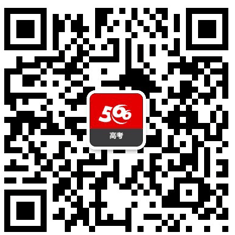6.过去进行时
①表示过去某一时刻或某一段时间内正在进行的动作(这一过去时间须用时间状语表示);
He was preparing his lecture all day yesterday.
②表示动作在另一过去动作发生时进行;
They were still working when I left.
③用在两个过去进行时动作同时发生;
I was writing while he was watching TV.
④过去计划、安排好的将来动作(只限于come, go, leave, arrive, start, move, sail, fly, travel, stay等);
He said she was arriving the next day.
⑤与always, forever, constantly, continually连用,表示赞赏或厌恶等感情色彩。
(参看现在进行时的用法④)
Comrade Lei Feng was always thinking of others never thinking of himself.
⑥过去进行时可用来描绘故事发行的背景。
The wind was blowing and it was raining hard.
7.过去完成时
①表示在过去某一时间以前已经完成的动作。
He had shut the door before the dog came up.
Everything had been all right up till this morning.
②表示动作或状态从过去某个时刻开始一直延续到另一个过去时刻才完成,甚至还要继续下去。At the age of ten,he had learned 500 English words.He had been ill for a week when we learned about it.
③过去未曾实现的意图、打算或希望(只限于think, want, plan, mean, intend, hope, expect, suppose,wish, want等动词)。
I had wanted to pay a visit to you yesterday, but the rain prevented me.
我本来想昨天拜访你的,但是下雨(让我不能来)。
注意:
▲过去完成时必须以过去某一时刻为基点,即“过去的过去”。因此只有在和过去某时或某动作相比较时才用到它;
▲before, after本身表示时间的“前”“后”明显,因此可用一般过去时代替过去完成时。
He (had) left before I arrived.
8.一般将来时
一般将来时有下列一些构成形式需要记住:
▲will/shall do (侧重将来行为,不突出计划安排去做某事)
▲be going to do (主观上打算或客观上可能发生)
▲be doing (按计划将要发生,常和表示最近的将来时间连用)
▲be about to do (按计划即将发生)
一般将来时的用法:
①现在看来以后要发生的动作或存在的状态
Tom will come next week.
He will be here tomorrow.
②事物的固有属性或必然趋势
Oil will float in water.
Fish will die without water.
③对将来某个动作的安排、计划
He is going to speak on TV this evening.
9.将来完成时
用来表示在将来某个时刻(前)将完成的动作。常和by短语,when,before引起的时间状语连用。
We will have finished senior Book 2 by the end of this term.
10.过去将来时
①过去某一时刻后将要发生的过去动作或过去的意图打算(主要用于宾语从句中);
She was sure she would succeed.
I thought you would come.
把一般将来时中的助动词变成过去式,便成了过去将来时的表达形式。
②表示过去经常发生的动作。
When he was young, he would go swimming.
注意:would与used to的区别:would只表示过去,不涉及现在,而used to表示“过去常常”要与现在比较,即现在不是这样了。
11.要求一定时态的固定的句型
①was/were doing sth. when…did sth.(正在做某事,这时突然……)
I was reading a book when the bell rang.
②was/were about to do sth. when…did sth. (正要做某事,这时突然……)
We were about to leave when the telephone rang.
③It(This) is(will be ) the first/second/third…time+ that…
It’s the first time I’ve seen her.
We have been there three times.
如果句中有比较确定的时间状语,则服从时间状语的要求。
Last year I saw him many times.
④It is/has been… since…
It is (has been) two weeks since I came here.
She said it was five hours since she had finished her work.
⑤Hardly… when…\No sooner… than…
Hardly had we got in the crops when it began to rain.
I had no sooner come into the room than the door was closed.
⑥It(This) is(will be ) the first/second/third…time+ that…
This is the first time I have been here.
It'll be the first time I've spoken in public.
相关推荐:2011高考英语语法考点讲练:动词和短语动词2011高考英语语法考点专题讲练:代词和数词
2011高考英语语法考点专题讲练:形容词和副词
·2021北京高考英语整体难度不大但阅读理解有点难 (2021-6-9 9:41:19)
·2021年高考英语试题解析:试卷结构和试题难度稳定 (2021-6-8 19:23:50)
·2021年高考英语冲刺复习指南 (2021-5-26 11:07:59)
·2021年高考英语作文常用6种开头 (2021-5-17 17:00:38)
·2021高考英语写作最好的模板大全 (2021-5-17 16:58:21)
·免费真题 ·模考试题

2022年上海高考作文题目已公布
2022年湖南高考地理答案已公布
2022年湖南高考生物答案已公布
2022年广东高考地理试题答案已公布
2022年湖南高考生物真题已公布
2022年广东高考真题及答案汇总
2022年浙江高考真题及答案汇总
2022年广东高考生物真题及答案已公布(完整版)
2022年浙江高考政治真题及答案已公布(完整版)
| 国家 | 北京 | 天津 | 上海 | 重庆 |
| 河北 | 山西 | 辽宁 | 吉林 | 江苏 |
| 浙江 | 安徽 | 福建 | 江西 | 山东 |
| 河南 | 湖北 | 湖南 | 广东 | 广西 |
| 海南 | 四川 | 贵州 | 云南 | 西藏 |
| 陕西 | 甘肃 | 宁夏 | 青海 | 新疆 |
| 黑龙江 | 内蒙古 | 更多 | ||

